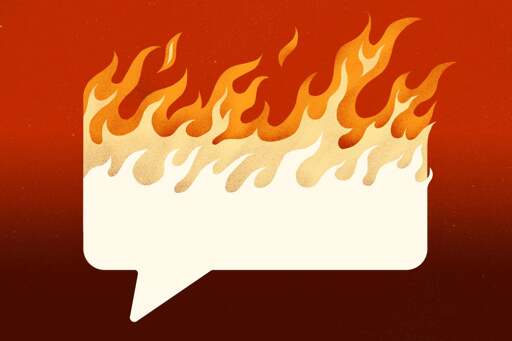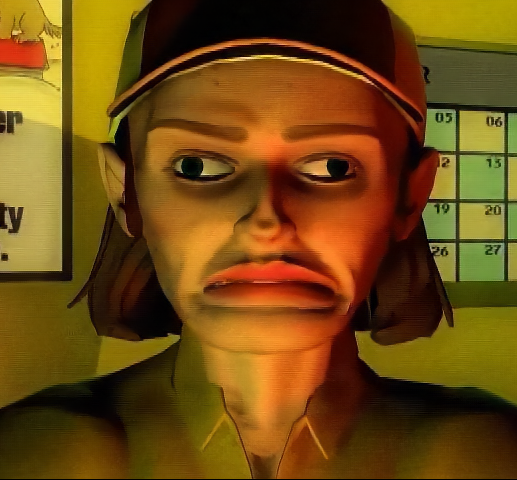From their own internal metrics, tech giants have long known what independent research now continuously validates: that the content that is most likely to go viral is that which induces strong feelings such as outrage and disgust, regardless of its underlying veracity. Moreover, they also know that such content is heavily engaged with and most profitable. Far from acting against false, harmful content, they placed profits above its staggering—and damaging—social impact to implicitly encourage it while downplaying the massive costs.
Social media titans embrace essentially the same hypocrisy the tobacco industry embodied when they feigned concern over harm reduction while covertly pushing their product ever more aggressively. With the reelection of Trump, our tech giants now no longer even pretend to care.
Engagement is their business model, and doubt about the harms they cause is their product. Tobacco executives, and their bought-off scientists, once proclaimed uncertainty over links between cigarettes and lung cancer. Zuckerberg has likewise testified to Congress, “The existing body of scientific work has not shown a causal link between using social media and young people having worse mental health, ” even while studies find self-harm, eating disorder and misogynistic material spreads on these platform unimpeded. This equivocation echoes protestations of tobacco companies that there was no causal evidence of smoking harms, even as incontrovertible evidence to the contrary rapidly amassed.
Meta whistleblower Sarah Wynn-Williams says company targeted ads at teens based on their ‘emotional state’
[…] She said the company was letting advertisers know when the teens were depressed so they could be served an ad at the best time.
[…]
The evil tobacco company is an outdated narrative. They were already regulated to hell 22 years ago when I started smoking and since then I’ve only ever seen the regulations increase now with the new apparent goal of outlawing nicotine. I can only speculate that people think this time we’re going to get prohibition right.
btw I quit smoking 7 years ago, and nicotine altogether 5 years ago.
It’s called “history”, not “outdated”. Op is comparing a historical behavior with a current behavior.
If anything the oil companies are the most evil. They knew climate change was going to happen 50+ years ago.
It’s illegal to grow your own tobacco in more states now than it is to grow you own cannabis
considering that tobacco companies are still here, it’s kind of a weird title
I would liken them to the automotive industry. Both have deeply harmed society by isolating people from each other (it sounds counterintuitive, I know). Both have created infrastructure that prioritizes individual consumption over collective well being, restructured daily life around corporate products, and normalized a form of privatized existence that erodes public space, shared culture, and relational life. Just as cars gutted walkable communities and made human scale living subordinate to machines, Big Tech has gutted organic social interaction, subordinating communication and attention to platforms designed for extraction and control. #fuckcars #fuckbigtech
Don’t forget the cycle of buying up all patents and shelving them if they are a threat to their goals. What a future we’ve wasted.
Reminds me of a part I’ve recently read on The Dawn of Everything, comparing the Great Lakes natives’ freedoms to our corporate owned “freedoms”: while we’re busy with the “possibility of freedom”, they cared about the exercise of their freedoms.
Before the colonization, they were free to visit other places because they almost always had someone that belonged to their clan living there and who would receive them with open arms. They didn’t have to pay anything for the travel proper, but obviously needed to take some supplies to spend the days on the wilderness. For us, if we don’t have money, we don’t have freedoms: gotta pay for the car+gas (or plane or ship ticket), food, housing.
Thank You for Posting (2025)
They are the asbestos of the internet.
asbestos at least was the best option until a couple years ago for numerous applications.
Getting a dumbphone was one of the best decisions I took in my life. It helps me focus better and read books. I don’t actually need the internet with me 24/7. If you really need me, you can call.
Try it. Some people will call you crazy. Just ignore them.
i’m curious, what exactly is the advantage of getting a dumbphone vs just uninstalling social media apps from your existing phone, or just disabling internet access all together? doesn’t that achieve pretty much the same thing while still being able to keep things like navigation and being able to see when public transport is delayed
I got an e-ink e-reader in the pocketable form factor of a phone (Bigme Hibreak Color). Instead of doomscrolling social media, I read a couple paragraphs of the Oppenheimer biography. Next I’ll reread Neuromancer. It’s life-changing. 10/10 highly recommended.
Cool! What made you chose that over something like the boox that is the same form factor but without phone functionality?
Color screen and the fact that Onyx, the makers of Boox, flagrantly violate GPL terms.
But it was the Boox Palma getting publicity that made me aware of the form factor and start digging. I’m super happy with the Bigme Hibreak, but I don’t have a SIM card in it. I mostly use it in airplane mode as a dumb e-reader and don’t even install any apps besides the minimum needed to do that.
Ah ok, so do you carry a smartphone as well? I wonder what it would be like to completely rely on the bigme
I do. It’s not ideal but it still gives me something better to do than social media.
I’ve heard it’s quirky and kinda mid as a phone, but not unusable.
People tend to interact with technology on a default permit basis, which is partly why they have weather-vane attention spans and obliterated focusing capacity. They’re like Pavlov’s dog, responding to every notification and ping and service update; and social media is treated as the default use state until something else yells for their attention.
I have notifications denied by default. Notifications are lame and a known privacy threat. No one needs to be bothered because someone responded in a group chat or a new post surfaced on a Lemmy comm or a ‘deal alert’ got pushed by some marketing dipshit on the other side of the planet. That they exist at all for email is ludicrous. Email is an asychronous protocol - delayed responses are a feature.
Stop giving this stuff attention on demand and start allocating attention windows where it will get seen to. Email that gets in front of your eyes is 99 per cent transaction stubs if you’re doing it right; there is no more reason to pay it any attention outside 7pm for 10 or 15 minutes (say). Similar treatment should apply to most messaging to be honest.
ok but like if I don’t have music and noise cancelling earbuds I will explode
pretty sure they are options
I would like wired earphones to make a comeback, though that wouldn’t stop certain assholes from watching stuff/listening to music without them on the bus with max volume
I mean you could walk around with an IPod, but that’s basically a phone anyway.
Except, you know, tobacco companies are modern day tobacco companies. They were never defeated.
it’s an analogy; the author is drawing parallels between them. Obviously Tobacco companies were not “defeated” but they were regulated to hell, and I’m sure the author would say that’s what we need to do with social media too.
Yeah, it’s crazy how many commenters here are completely missing the point. I should really stop assuming people have any sort of intelligence.
The flaw in the analogy is that it assumes that those effects are limited to some companies when in reality every single company that existed in history has behaved this way if they weren’t stopped by regulation.
Most companies aren’t peddling a toxic product like cigarettes (or social media).
But they are peddling a toxic behaviour of unnecessary and uninhibited consumption.
Unless society as a whole is ready to move beyond capitalism that won’t change.
The flaw in the analogy is that it assumes that those effects are limited to some companies
no it doesn’t.
Muted in the English world. I argue junk food commercials draw a lot of parallels with cigarette commercials of the past. For some reason obesity isn’t worth prevention so the advertisements are pretty gross.
Soft drinks. Coca Cola especially really loves to tie emotions and sports/holidays to sugar water.
Well, considering all the tobacco companies entrenched themselves in food companies you’re basically right.
It’s why foods are addictive, and have very little nutritional value. It’s beyond “oh no its full of sugar” it the fact that everything is processed and is full of fake sugar (as an example).
Muted in the English world.
I don’t know think you’ve been to Europe much… Just a guess
They were never defeated.
When you say “defeated”, what exactly do you mean? You mean that they should cease to exist to be considered as such? If that’s the case then I would say it’s an unrealistic expectation.
I would say that they’ve been largely contained. If I remember correctly, back in the '50s almost half of the American population used to smoke. The percentage of people smoking has been consistently decreasing over the years thanks to regulation and increased taxation. Tobacco companies are definetly not as influential as they once were.
How many vape, which is more harmful, more addictive?
How is it more harmful?
That article makes it clear it is less harmful.
Vape if you want.
They won’t stop mega corping like they used to, they got supplemented by cars then oil then banks and now tech/pharma
No company will stop attempting to achieve mega corp status in a capitalist environment. Gotta make that line go up and to the right!
You made me notice that a lot of companies learned from tobacco companies not just those XD
I’ve been telling this to family and friends, apparently they didn’t want to agree. At least there is article now. I do think current social media will be looked at in future like tobacco/smoking is currently looked at.
Wait till you find out we still have tobacco companies, and they’ve been getting into the vape and weed game this whole time
I think that, in 10-20 years, the research around social media addiction will bear out this way, yes. It’s wild to me how every time the discussion around regulating social media comes up, most people just kind of ignore its effects on kids’ mental health.
It’s not very wild when you realize you’re talking to addicts. The whole world is addicted.
Mandatory physical exercise too, an hour minimum a day, no contact sports, punishable by jail time. Also diet, we should all be eating healthy, no more sugar or high cholesterol food being sold. We can mandate everyone’s well being by the barrel of a gun.
Wow. I don’t know why I’ve never made the parallel before, but yes, this is a good way to explain to people the woes of these companies that can be overlooked in the moment but are painfully clear in hindsight.
Even though I knew about most of this, I never realized how striking the parallels are.
Y’all, one of the far-reaching Broligarchy ideas they’re hoping emerges from the ashes of the United States is the DAO, decentralized autonomous organization.
Every action in the block chain. They facilitate, and are predicated on, the idea of treating every aspect of life as a social network. Everything you do is recorded. So daily life ends up incentived toward constant, persistent, corralled engagement. The Network State is the term.
The difference is that you can’t build a society on the mechanics of the tobacco industry. But you can on a human reaction industry.
And this yet another reason why we should be using cryptocurencies that provide actual privacy, like anyone could go right now and see every drug transaction on silk road, or any hacker getting their Bitcoin confiscated, or any transaction ever, except for those done through monero and some with zcash.
Btw where’d you hear abt this? or did you just come up with it?
It’s been a topic of conferences, books, podcasts, and new laws for almost a decade. They have it all in plain sight. Lol, made it up.
Curtis Yarvin has his Butterfly Revolution, which Thiel is all in about. Therefore Musk as well. Of the five pillars of Yarvin’s guide to authoritarianism, the EO about forcing university accreditation to heel is the last one needed to hit them all. Well documented, and the Nerd Reich had a post recently about how Yarvin is mad at how incompetent Trump and Musk are because they’re literally not gasing people to death by now.
A guy named Balaji wrote a book called the Network State that outlines the government that should replace democraticly electing people. Also a podcast, also conferences with folks like the creator of Etherium backing it. He’s been pushing countries to recognize DAOs as legal entities. Wyoming is on board, and Palau and the Marshall Islands have also been receptive as nation level test cases. Network city-states are in the mix as well.
This is the stuff that makes Project 2025 look like quaint kids’ games. However, where they both agree is the idea of repealing the social gains of the 20th century. Civil rights, women’s rights, gone. The goal is techno-fascist fifedoms built around crypto and AI, like Thiel’s investment in Praxis, where broligarchs don’t just have money, they control the force and violence of the state, which is something that money can’t just buy.
I think in some cases DAOs kinda make sense to be legal entities (in some contexts), like a public company is somewhat controlled by its investors, and if you want to create some sort of crypto-related product - im thinking of something like polymarket or opensea here - you could get investment by auctioning off special voting tokens for the DAO that controls it (so if the majority of token holders wanted to, they could for example, change the background of the site, or introduce a new feature). I imagine getting legal recognition of such a company would make this a ton easier.
Of course, replacing/creating governments with this sorta thing would be insane, but on a lower level, like for companies, it doesn’t seem that bad
i wouldnt go as far calling them that, more like big box stores like walmart,etc.












